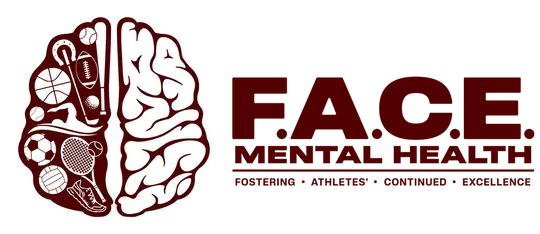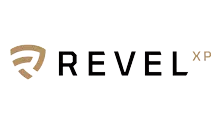Counseling and Sport Psychology Services
Howdy!
Contact Dr. Ryan Pittsinger (rpittsinger@athletics.tamu.edu) or Dr. Lauren Craig (lcraig@athletics.tamu.edu) if you’d like to schedule an appointment.
Welcome!
The mission of Counseling and Sport Psychology Services is to provide short-term psychological services to Texas A&M University student-athletes to facilitate the development of the whole person. The Counseling and Sport Psychology Services staff fosters mental health and overall well-being by promoting success in personal, educational, and athletic goals, and striving to establish a safe, welcoming, and multi-culturally aware environment that embraces and is inclusive of all diversity.
Services offered by Counseling and Sport Psychology Services include:
- Personal Counseling
- Assessment Screening for ADHD or Learning Disorders
- Group Counseling
- Career Counseling
- Performance Psychology
- Team Building Activities
CONFIDENTIALITY
Feelings of trust and safety are critical for personal growth and relationship building. Therefore, confidentiality is taken quite seriously. All aspects of individual counseling sessions are confidential and protected by state law. No information will be released without the express written consent of the student-athlete or in instances where disclosure is required by law (e.g. serious threat of harm to self or specifically identified others, court order, child or dependent adult abuse and/or neglect, report of sexual conduct with a previous mental health professional).
SCHEDULING AN APPOINTMENT
Appointments are primarily held Monday through Friday between 8 a.m. and 5 p.m. However, other times can be made available as necessary. Appointments can be made by contacting:
 | Ryan Pittsinger, PhD (979) 335-9681 Nye Academic Center | Office 243 |
I am excited to be apart of the Texas A&M Athletics Department as the Director of Counseling and Sport Psychology Services and serve the needs of all student-athletes. I honor the unique demands and experiences student-athletes are often faced with and strive to offer support in meaningful ways that is tailored to each student-athlete’s specific needs. I approach my work with individuals through a strengths-based lens, while embracing all aspects of diversity in order to foster a safe and supportive therapeutic relationship.
I completed my Bachelor’s degree in Psychology from the University of Utah and my Master’s degree in Sport Psychology from California State University, Long Beach. I earned a PhD in Counseling Psychology from the University of Iowa, where I worked in the Athletic Department as a counseling and sport psychology practicum student, as well as taught sport psychology and resiliency courses in the Kinesiology Department.
I look forward to having the opportunity to support your personal, academic, and athletic journey!
 | Lauren Craig, PhD (979) 335-9681 Nye Academic Center | Office 242 |
I feel privileged with the opportunity to work with the Texas A&M Athletics Department and to provide care and support for student-athletes throughout their athletic and academic journey in Aggieland.
The transition to college is often both a rewarding and challenging time, and I honor and welcome the growth and change that occurs during these years. I also acknowledge the unique expectations and experiences that come with being a collegiate athlete while striving to pursue academic, career, and personal growth. In my work, I strive to build a safe and supportive therapeutic relationship while creating space for you to explore your experiences on & off the field and collaborate with you in identifying goals and working toward improvement in all areas of your life. I often approach my work through an interpersonal lens, and view individuals as continuously growing, discovering and strengthening the various components of their identities that make them who they are. I also embrace all aspects of diversity and work to provide a space where you feel that your voice is heard, honored and respected.
I completed my Bachelor’s degree in Psychology from Midwestern State University and my Master’s degree in Counseling Psychology from the University of Central Oklahoma. I earned a PhD in Counseling Psychology from the University of Oklahoma, where I worked with the Psychological Resources for OU Student-Athlete’s (PROS) office for three years as a graduate assistant and clinical practicum student. I also completed my doctoral internship with the Student Counseling Service at Texas A&M’s Student Counseling Service, where I completed specialized training and work with student athletes under the supervision of Dr. Ryan Pittsinger and Dr. Mary Ann Covey.
WHAT TO EXPECT
Services are free of charge to current TAMU student-athletes. The first session typically lasts about an hour and includes time for completing initial paperwork and discussing current concerns, relevant history, and goals for counseling. Follow-up sessions typically last 45-50 minutes and occur once every week or two. Sessions focus on processing emotional experiences, as well as discussing goals, strategies, and skill development to address concerns.
If it is determined that more specialized or long-term treatment is needed, a referral to an external resource (e.g. long-term counseling provider in the community, inpatient treatment, intensive substance abuse treatment or psychiatric consultation and care) will be made.
COUNSELING
Counseling provides an opportunity to confidentially talk with a trained mental health provider about concerns you have or obstacles you feel may be preventing you from achieving your personal, academic, and athletic goals. Our staff strives to provide an open and accepting environment that will allow you to explore options and discuss possible strategies or solutions to help improve the concerns you are experiencing.
Some things you might accomplish with counseling include:
- Identifying concerns and understanding how these concerns are affecting your life personally, academically, athletically, or socially.
- Exploring possibilities or new ways to deal with concerns.
- Developing strategies to improve your relationships.
- Identifying your strengths, abilities, and values.
- Defining and acting on goals and expectations that you set for yourself.
COMMON CONCERNS
One important thing to know is that there does not need to be "something wrong with you" in order to make an appointment or talk with someone. If you feel that you are not living up to your potential personally, academically, or athletically, or if you are having difficulty making changes on your own, counseling may be a helpful resource to consider.
- Sadness or Depression
- Anxiety/Low Confidence
- Relationship Difficulties
- Family Concerns
- Transition Concerns/Adjustment to College
- Athletic Injury
- Personal Identity Development
- Body Image Concerns
- Recovery from Trauma
- Grief and Loss
- Substance Abuse
- Athletic Performance Concerns
GROUP COUNSELING
- Time-Out: Injured Athlete Support Group - Every Tuesday, 3:00-4:30 in the Hall of Champions
*This group is for student-athletes coping with a season-ending or career-ending injury and provides an outlet to discuss your injury experience, gain support from each other, and learn new strategies to better navigate the injury period and beyond. - Mindful Monday Drop-In Meetings - Every Monday, 7:00-7:30 in the Hall of Champions
*A weekly, 30-minute drop-in meeting time designed to discuss effective stress management, positive self-care, and maximizing your performance by maximizing your mental and emotional health. One topic that will be emphasized during these meetings is mindfulness.
SUBSTANCE ABUSE EVALUATION/TREATMENT
Substance abuse refers to the harmful or hazardous use of psychoactive substances, including alcohol and illicit drugs. Over time, individuals may become dependent or addicted to a substance. This means that the individual demonstrates several behavioral, mental, and physical symptoms that may include a strong desire to take the drug, difficulties in controlling use of the drug, persisting in its use despite harmful consequences, increased tolerance for the drug and sometimes a physical withdrawal when the drug is stopped.
The primary goal of substance use counseling is to prevent student-athletes from experiencing the negative and often life changing effects of a substance use disorder. Additionally, the mission of the Counseling and Sport Psychology Services office is to provide education on the physical, psychological, social, ethical, NCAA-related and legal consequences of banned drugs of abuse, including alcohol.
If you think you have a problem in this area, or just have a few questions or concerns, confidential counseling is here to help.
ASSESSMENT SCREENINGS
Counseling and Sport Psychology Services utilizes and variety of career, personality, and symptom assessments within the treatment process. Information gathered through the use of assessments provides treatment guidance and helps determine remediation strategies if needed in order to provide thorough and effective clinical care.
In addition to career, personality, and symptoms assessments, Counseling and Sport Psychology Services provides assessment screenings for concerns related to Attention-Deficit/Hyperactivity Disorder (ADHD) and Learning Disorders. When completing an ADHD/Learning Disorder Screening assessment, you will be able to gain more information about whether further assessment or treatment for these concerns would be beneficial to you. If further assessment is warranted, we will help you get connected to a provider who can provide additional assessment and treatment recommendations.
Common Difficulties of Adult Learning Disorders include, but are not limited to:
- Continues to spell incorrectly, frequently spells the same word differently in a single piece of writing
- Difficulty adjusting to new settings
- Works slowly
If you struggle with two or more of these common signs, it may be helpful for you to schedule a screening assessment.
Common Symptoms of Attention-Deficit/Hyperactivity Disorder (ADHD) include, but are not limited to:
- Makes careless mistakes when completing tasks
- Trouble holding attention on tasks
- Often fidgety; Difficulty sitting still
- Feeling restless or "on the go"
If you struggle with two or more of these common symptoms, it may be helpful for you to schedule a screening assessment.
PERFORMANCE PSYCHOLOGY
Performance psychology, also known as sport psychology, is a service provided that utilizes strategies to help a student-athlete achieve optimal performance and is often used by individual athletes, teams, and coaches.
Most student-athletes recognize the importance of physical training and preparation. However, the best outcomes are achieved when a student-athlete recognizes the need for combined physical preparation with excellent mental training and practice. Overall, benefits of sport psychology include increased confidence, consistency, and an overall higher level of performance satisfaction.
Performance psychology sessions may look different than a traditional personal counseling session. For example, sessions may range from short discussions in passing while at practice to a full 50-minute session in the staff psychologist's office. Additionally, when compared to traditional personal counseling, performance psychology sessions tend to be more instruction based and solution-focused.
COMMON CONCERNS
When competing, gaining and maintaining confidence in y our abilities, focusing attention accurately and efficiently under pressure, and maintaining composure during challenging situations is critical. Utilizing strategies from performance psychology can help you recognize and utilize your personal strengths.
Common issues addressed often include, but are not limited to:
- Low confidence
- Difficulty in communicating with teammates or coaches
- Feeling distracted during competition
- Feelings of burnout or lack of joy and fun in sport
MENTAL SKILLS WORKSHOPS/TEAM BUILDING
Mental skills workshops are designed to address the unique goals of the participating team. Workshops are often both educational and interactive in nature, and strive to provide memorable experiences that build and strengthen team unity, reinforce team mission and vision, and clarify team goals and responsibilities.
Some key benefits include:
- Addressing team-specific goals in a unique format
- Using fun and interactive activities to communicate valuable messages
- Identifying leadership qualities and strengthening team dynamics
- Exploring important topics or issues as a group to develop shared understandings
How to Schedule
If you are interested in scheduling a workshop or team building activity for your team, you can contact:
Ryan Pittsinger, PhD
(979) 335-9681
Nye Academic Center | Office 243
or
Lauren Craig, PhD
(979) 335-9681
Nye Academic Center | Office 242
RESOURCES
Campus Resources
- Student Counseling Service (SCS) | (979) 845-4425
- Student Counseling HelpLine (Number also located on back of student ID) | (979) 845-2700
- Student Health Services (Beutel) | (979) 458-8310
- Student Assistance Services | (979) 845-3113
- Department of Multicultural Services | (979) 862-2000
- GLBT Resource Center | (979) 862-8920
- Texas A&M University Counseling & Assessment Clinic | (979) 595-1770
- Women's Resource Center | (979) 845-8784
- University Emergency Medical Services (Non-Emergency) | (979) 845-1525
- University Police Department (Non-Emergency) | (979) 845-2345
Community Resources
- Sexual Assault Resource Center (free counseling & resources for survivors of sexual assault) | (979) 731-1000
- Brazos County Health Department | (979) 361-4440
Additional community resources can be provided for specific concerns and needs upon request.
Please contact Dr. Pittsinger or Dr. Craig by email if you would like help in finding a resource that would be the best fit for you and your situation.
SCHEDULE AN APPOINTMENT
We talk with student-athletes in routine and crisis situations. The best method for connecting with a counselor depends on your situation.
Routine:
If you are not in crisis or an urgent situation, you are encouraged to make an appointment through our online registration process. At the end of the registration process, you will be able to make an appointment.
Once you complete the online registration paperwork, you will be contacted within 24 hours to schedule an appointment for a time that fits your schedule.
To Complete the Online Registration:
- Go to www.scs.tamu.edu and click "Register for Services".
- Complete the various items on each page.
- On the final page, where you are asked to select a date/time for an appointment, you can skip this step and complete the registration by pushing the Complete button. Rather than selecting an appointment time on the website, you will be contacted by Dr. Pittsinger or Dr. Craig in order to confirm an appointment time.
Crisis:
If you find yourself in a life threatening or life altering crisis situation and you urgently need to speak to a counselor, you can go to the Student Counseling Service Reception Building (Building 3) at Student Services at White Creek. This service is available anytime during business hours Monday through Friday; however, we do ask that students present themselves before 4:00 p.m. so that we can devote a full hour to discussion of their issues before we close.
No appointment is needed for crisis counseling.
Information, support, and crisis intervention are also available after business hours through HelpLine at 979-845-2700 (V/TTY).
If you have any problems with the registration process, please call us at 979-845-4427. You can also email Dr. Ryan Pittsinger or Dr. Lauren Craig directly with any questions or concerns you may have.













